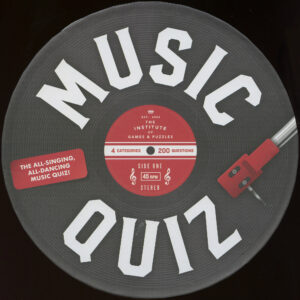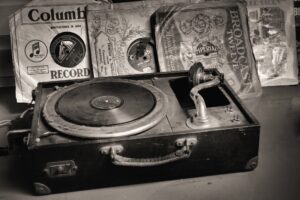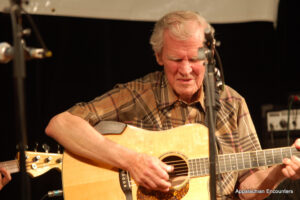Jana Pendragon at AllMusic does a nice job of profiling Ralph Stanley. Here is how it starts:
Born in Stratton, Virginia in 1927, Ralph Stanley and his older brother Carter formed the Stanley Brothers and the Clinch Mountain Boys. In 1946 Ralph and Carter were being broadcast from radio station WCYB in Bristol, Virginia. The music, which was inspired by their Virginia mountain home, was encouraged by their mother, who taught Ralph the clawhammer style of banjo picking. They recorded for such companies as the small Rich-R-Tone label and later Columbia, a relationship that lasted from 1949 until 1952. These classic sessions defined the Stanleys’ own approach to bluegrass and made them as important as Bill Monroe. After leaving Columbia, the Stanleys were with Mercury, Starday, and King. Leaning toward more gospel at times, Carter and Ralph made a place for themselves in the music industry. In December 1966, Carter Stanley died in a Virginia hospital after a steady decline in health. He was just 41 years old. After much consideration and grief, Ralph carried on without Carter. Already their haunting mountain melodies made them stand apart from other bluegrass bands, but Ralph expanded upon this foundation and took his own “high lonesome” vocals to a new plane. (Continue Reading…)
Charles McGrath wrote a feature about Stanley in the New York Times four years ago. He paints a clear picture of the man and his music:
The songs tend to be about hard times, unfaithful lovers, deceased children, lonely graves. One of his most famous, “O Death,” is a pleading dialogue with the Grim Reaper himself. It used to be said that when you heard a Ralph Stanley tune, you either wanted to get drunk or go to church and get saved.
and
Onstage Mr. Stanley looks a little like an undertaker. He’s a small, serious man with wiry, steel-gray hair, and when he’s not using his hands, he tends to keep them clasped in front of him. For concerts he favors coal-black suits and dark shirts with a few tasteful rhinestones. He’s been on the road so long, he said, that he seldom gets stage fright. (Continue Reading…)
Here is the bio from the Ralph Stanley Museum website. The great news is that 87-year-old Dr. Stanley, as he is known, still is performing.
Above “I’ll Fly Away” and below is “The Rank Stranger.”
(Home page photo: Larry Miller)










